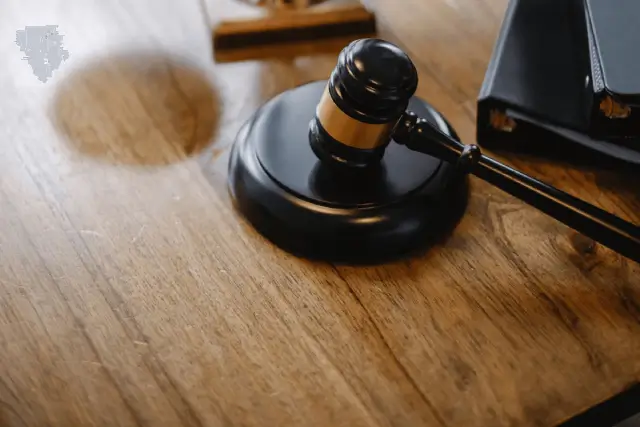Are you an aspiring public official? The role of a Justice of Peace might have crossed your mind. If you are leaning towards this role, you must be prepared for the skills and knowledge needed in this field. Before you dig into what you will learn from a Justice of the Peace course, you should know what it is about.
What is a Justice of Peace?
A Justice of the Peace (JP) is a public official authorised to perform various duties, including witnessing and certifying signatures on legal documents, administering oaths, and issuing subpoenas. To become a JP, one must complete a Justice of Peace course, which provides a comprehensive understanding of the responsibilities and duties of a Justice of the Peace. The specific duties of a JP may vary depending on the jurisdiction, but duties fall into five main categories:
Witnessing people signing documents as prescribed by law
Certifying copies of documents
Issuing summons and warrants
Minor bench duties
Attending at police records of interviews
JPs play an essential role in the justice system by providing access to legal services and assisting with the administration of justice in their communities. They must thoroughly understand the law and be committed to upholding the principles of justice and fairness.
Justice of Peace Course: What to Expect?
Now that you know the roles of a Justice of Peace, here are some of the things you can expect to learn in a Justice of the Peace course:
⦁ Legal and Ethical Responsibilities
A JP course will provide a detailed understanding of the legal and ethical responsibilities of a Justice of the Peace. This includes understanding the various laws, regulations, and codes of conduct that govern the role of a JP.
⦁ Court Procedures
You will learn about the various court procedures and how to perform them, such as administering oaths, issuing subpoenas, and signing warrants.
⦁ Document Verification and Certification
A JP course will teach you how to verify and certify documents, including witnessing signatures and authenticating copies of essential documents.
⦁ Conflict Resolution
As a JP, you may be called upon to mediate individual disputes. You will learn conflict resolution techniques to help you navigate these situations effectively.
⦁ Communication Skills
A JP must be able to communicate effectively with a wide range of people, including lawyers, law enforcement officers, and members of the public. A JP course will help you develop practical communication skills to aid you in performing your duties.
⦁ Cultural Awareness
Cultural sensitivity is an essential part of being a Justice of the Peace. A JP course will help you understand and navigate cultural differences and ensure that you are sensitive to the needs of diverse communities.
⦁ Role of a JP in the Community
A JP is vital to the community and promotes justice and fairness. You will learn about the importance of community involvement and how a JP can help create a more just and equitable society.
Commissioner for Declarations: What Is It?
In Australia, a Commissioner for Declarations is authorised to witness and certify statutory declarations, affidavits, and other legal documents. The Queensland government appoints them under the provisions of the Statutory Declarations Act 1959.
The role of a Commissioner for Declarations is to act as an independent witness to a person’s signature on a legal document and to verify that the person making the declaration is doing so voluntarily and with a complete understanding of its contents.
To become a Queensland Commissioner for Declarations, a person must be over 18 years of age and not be undischarged bankrupt or have been convicted of certain criminal offences. They must also complete a training course and pass an exam to be authorised to act as a Commissioner.
Queensland Commissioner for Declarations are authorised to witness and certify various legal documents, including statutory declarations, affidavits, and certified copies of documents. They are not authorised to provide legal advice, but they can guide the process of making a statutory declaration or affidavit.
Commissioners for Declarations are often found in government offices, such as courts and police stations. Still, they can also be found in some private businesses, such as law firms and notary public offices.
Statutory declarations and affidavits are critical legal documents used for various purposes, such as applying for a passport, claiming government benefits, or making a legal claim. These documents must be signed and certified correctly to ensure their validity.
If you need a statutory declaration or affidavit witnessed and certified by a Commissioner for Declarations, you can usually find one at your local courthouse or government office. You may also be able to find a Commissioner for Declarations at a law firm or notary public office.
In conclusion, a Commissioner for Declarations play an important role in the legal system in Australia by ensuring the validity and authenticity of legal documents. If you need to have a legal document witnessed and certified, be sure to seek out the services of a qualified and authorised Commissioner for Declarations in your area.
Enrol in Our Justice of Peace Course!
Join our Justice for Peace course at Australian Training Institute today and take the first step towards creating a more just and peaceful world. Learn from experts in the field and gain the knowledge and skills needed to become an agent of positive change. Sign up now and be part of a community committed to promoting justice and peace. Together, we can make a difference!
With both online and face-to-face courses available, our Justice of the Peace course is designed to fit your busy lifestyle. You’ll learn about the legal framework for Justice of the Peace proceedings, court procedures, conflict resolution, etc.
Our Queensland Commissioner for Declarations course also offers online and face-to-face options, and is a good choice for those who do not need to complete the full Justice of the Peace course, but need to be able to do some of their duties.
Our courses are accredited and recognised by the appropriate governing bodies in your jurisdiction, ensuring you receive the training you need to become a qualified justice of the peace or qualified commissioner for declarations.
Enrol today and start your journey towards a rewarding career as a justice of the peace or qualified commissioner for declarations. Take advantage of this opportunity to make a difference in your community!
View All Courses

